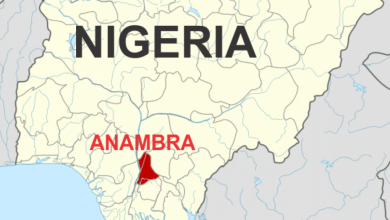
Anambra State governor-elect, Prof. Chukwuma Soludo has identified a community in Anambra State, where he will begin work, immediately after swearing in.
Soludo said Okpoko, a slum community, very close to Onitsha, and it’s dwellers deserve to live in a more decent environment than what is presently obtainable.
A press release by the media aide of the governor-elect, Mr Joe Anatune reiterated that Soludo was ready to ensure that the people living in Okpoko were given a decent living.
Soludo had earlier stated that he was not ready for a fanfare to herald his swearing in, as he would be spending eight hours working on the same day, despite being a weekend.
Anatune in his press release said: “Anambra State Governor-elect Cee Cee Soludo has been consistent in his resolve and determination to give Okpoko town in Ogbaru Local Government Area a new lease of life.
“This is in line with his goal to transform Anambra into becoming the most liveable smart Megacity in Nigeria. Liveability and prosperity are the fulcrums of the new Anambra he envisions, while ensuring that our major cities of Awka, Onitsha, Nnewi and Ekwulobia are clean, green and well-planned is foundational to the success of this goal.
“The governor-elect has in several fora declared that his first official engagement after swearing in will be a visit to Okpoko to launch activities for the slum’s upgrading.”
Okpoko is an unplanned settlement lacking basic social amenities such as clean water, sanitation, access roads and hygienic facilities.
The community parades shanties as living homes, with dirty floors, without windows and with leaky walls and roofs. The homes are often overcrowded and also lack good toilets. The structures are weak and can be blown away by winds, especially during rainy seasons.
Okpoko is devoid of basic amenities, and also has the worst schools in the state, just as children in the community perform much worse in school with comparatively higher dropout rate.
Anatune said: “Okpoko caught the attention of Soludo in 2010 in the course of his governorship electioneering tour of Onitsha and its suburbs.
“The horrible image of Okpoko and the hilarious conversation he had with a young boy who asked for money from him had struck him vividly. Pleasantly, he obliged the kid some money and also promised him that he would do all within his powers if he became governor to give him and other residents of Okpoko a better quality of life.
“Soludo is poised to upgrade the Okpoko slum for the benefit of the residents and to the glory of God. No doubt, a new dawn is here for Anambra in all its glorious possibilities.”






